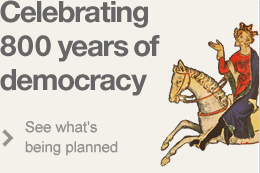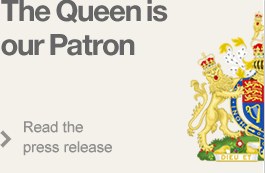The Master of the Rolls is the ex-officio Chair of the Magna Carta Trust. The current Master of the Rolls is Lord John Dyson.
Below is a short description of the history of the office of Master of the Rolls.
The origins of the office are to be found in the history of the Chancery where the practice, at least from 1199, was to keep parchment roll copies of the most important notes sent. The first recorded custos rolulorum was John De Kirkby (1265), but the holder of the office was styled in many different ways until the “Master of the Rolls” became the accepted title around the end of the 15th century. The first mention of the title in statute was in 1495 in an Act of Henry VII that exempted the Master of the Rolls and the Officer of the Chancery from forfeiture of their offices if they failed to attend the King if he went to war in person. (Megarry’s Miscellany quotes one Gaelic translation of the title as “maître des petits pains”). By the reign of Edward I the Master of the Rolls had acquired his own separate household and in 1377 Edward III assigned the House for Converted Jews (for whom he was made responsible) in Chancery Lane to be his official residence. Its site is now occupied by the Public Record Office. It is also said that he owned 60 houses in the streets around – “all at good rents”.
The duties of the Master of the Rolls have in the past been many and varied and controversy has raged over his position and role. The precise time of the change from archivist to judge is unknown but it is assumed that the custodian aspect of the office would be delegated to his clerks as the Master of the Rolls took on more judicial duties to help the Chancellor. He became in fact the general deputy of the Lord Chancellor, but it was disputed whether his powers were exercised by virtue of his sitting as the Chancellor’s deputy or by virtue of his own position as Master in Chancery. A statute of 1729 settled the issue : it provided that all orders made by the Master of the Rolls should be valid, subject to an appeal to the Lord Chancellor. But the Master of the Rolls still continued to be regarded as the Chancellor’s deputy, not sitting when the Chancellor himself was sitting. Only in 1833 was it provided that the Master of the Rolls should sit continuously in order to hear motions, pleas and demurrers in addition to the petitions addressed to the Chancellor. The Rolls Court was to last 50 years as a court of first instance; it was abolished by the Judicature Act of 1881. The Master of the Rolls ceased to be a judge of the High Court and became a judge of the Court of Appeal.
Today the Master of the Rolls is President of the Court of Appeal (Civil Division) and Head of Civil Justice – the second most senior judicial office in England and Wales, after Lord Chief Justice. He is still responsible for the Chancery Records although the public records are now the responsibility of the Lord Chancellor. He is, however, Chairman of the Advisory Council on The National Archives and the Historic Manuscripts Forum.
Featured Article
I am delighted to have been asked to speak to you this evening. This is an event which marks a number of important themes. As we have heard, we celebrate a major anniversary – the 50th anniversary of the Magna Carta Trust...
Read on...Recent Articles
- Magna Carta's American Adventure
- 800th anniversary of Bristol...
- Bristol 800 concert and...
- Emancipation and Magna Carta
- Terrorism and Tolerance -...
- Magna Carta
- Magna Carta Benches mark...
- ABA Magna Carta Memorial...
Stay updated
If you would like to keep informed about the work of the Magna Carta Trust and our partners, please sign up to the newsletter below.
Become a Supporter
There are a number of significant supporter opportunities. Register your interest early to ensure the widest range of options.
Find out more




